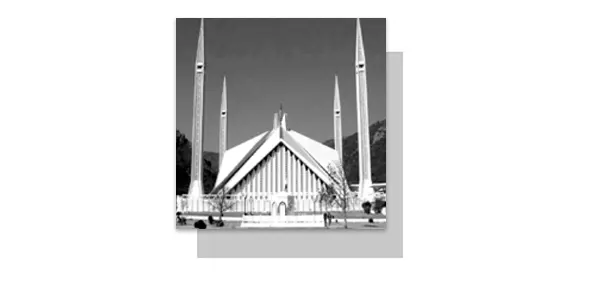THE Apostle’s night journey, his ascent through the spheres is touched in the introductory verse of Quran(Sura17). The connection of Mehraj with daily prayers, a repetition of the joy of ascension in which every Muslim feels the divine presence is often made, but the mystics apply the ascension terminology to their own experiences in the rapture of ecstasy. BayezidBistami was the first to use this imagery in describing his mystical flight through the heavens. Many others followed him. Rumi expressed it this way, “Love is ascension towards the roof of the Prince of Beauty, read the story of the ascension from the cheek of the beloved.”
Not even Gabriel could accompany the Prophet beyond the ultimate lotus tree, ‘Sidrat al-Muntaha.’ “If I would go one step further, my wings would get burned,” is the archangel’s sigh, as the mystics interpreted it. For Rumi, this answer describes the weakness of discursive reason, when it draws nearer to the mystery of divine love. It was at this moment that the Prophet was left alone in the loving encounter with God that he describes with the words, “I have a time with God in which no created being has access,” not even Gabriel, who is pure spirit, for Gabriel is still a veil between the lover and the beloved. The Prophet’s expression, “I have a time with God. “Li ma Allah waqt,” is often used by the Sufis to point to their experience of ‘time’ the moment at which they break through created time and reach the Eternal, when everything created (including the archangel) remains outside and is in their experience annihilated.
Iqbal in his modern interpretation of mystical symbols, understands this tradition as a reference to the moment at which ‘the infidel’s girdle’ namely, serial time is torn and the mystic establishes direct contact with God in a person-to-person encounter.’ This emphasis on the person-to-person encounter in the mystical interpretation of the Mehraj seems particularly revealing. The Prophet although created as the most perfect being, still remains a creature and is not united with God. The opening words of (Sura 17) “Praised be He who travelled with His servant at night,” indicate that even in the moment of rapture the Prophet is still called His servant, Abduhu. That implies that ‘servant’ is the highest possible name for a human being. The poet indulges in imaginative description of the heavenly journey performed on the handsome steed (Buraq) with its peacock tail and human face and how Muhammad (PBUH) passes through the spheres of sun and moon along the Milky Way talking with the Prophets, surrounded by colorful angels, until he reaches the divine presence.
The Munificence of Allah Almighty ‘The Night of Ascension (Laylat-al-mehraj) was the counterpart of the Night of Power (Laylat al-qadr) the night when the Quran was first revealed. The Prophet received many benedictions and spiritual privileges from the Divine Presence. The final stage of this journey to the Divine Proximity is described by a well-known traditional authority, al-Suyuṭi in his ‘al-La ali al-masnu ah’ as follows “Such was the sweetness of His melodious voice that it gave me confidence, and so I spoke to Him of my need. I said, “O Lord, Thou didst take Abraham as a friend, Thou didst speak with Moses face to face, Thou didst raise Enoch to a high place, Thou didst give Solomon a kingdom such as none after him might attain and didst give to David the Psalter. What then is there for me, O Lord?” He replied, “O Muḥammad (PBUH) I take you as a friend, just as I took Abraham as a friend. I am speaking to you just as I spoke face to face with Moses. I am giving you the fatiḥa(Sura1) and the closing verses of al-Baqara (Sura II, 284–286), both of which are from the treasuries of My Throne, which I have given to no other Prophet before you. I am sending you as a Prophet to the white folk of the earth, and the black folk and the red folk, to Jinn and to men thereon, though never before you, have I sent a Prophet to the whole of them. I am appointing the earth, its dry land and its sea, for you and for your community as a place for purification and worship. I am giving your community the right to booty, which I have given as provision to no community before them. I shall aid you with such terrors as will make your enemies flee before you, while you are still a month’s journey away. I shall send down to you the Master of all Books and the guardian of them, a Quran which We Ourselves have parcelled out (SuraXVII, 106/107).” “I shall exalt your name for you, (Sura XCIV 4) even to the extent of conjoining it with My name, so that none of the regulations of My religion will ever be mentioned without you being mentioned along with Me.
After such an overwhelming experience, during which he was declared to be inwardly the synthesis of all previous messengers and was granted assurances of Divine Succor and Glory, the Prophet was naturally reluctant to leave the Divine Presence and to return to the world of relativity and passion. He was promised however before his return to earth, that he and his followers would experience the ecstasy of ascension in divine worship. That is why the daily prayers are called the mehraj of the faithful.” ‘The Quranic dicta about Muhammad (PBUH)as the Seal of Prophets, after whom no prophet will ever appear on earth has shaped the Muslim faith since centuries, It also provided the Sufis with infinite possibilities for meditating on the mysteries hidden behind the person of the Prophet (PBUH).Assalamu Alaikum Warahmatullahi Wabarakatuh, ‘May the peace, mercy and blessings of Allah Subhanwa Tallah be with you Ya Rasul Allah.’
—The writer is author of various books based in Rawalpindi.
Email [email protected]










